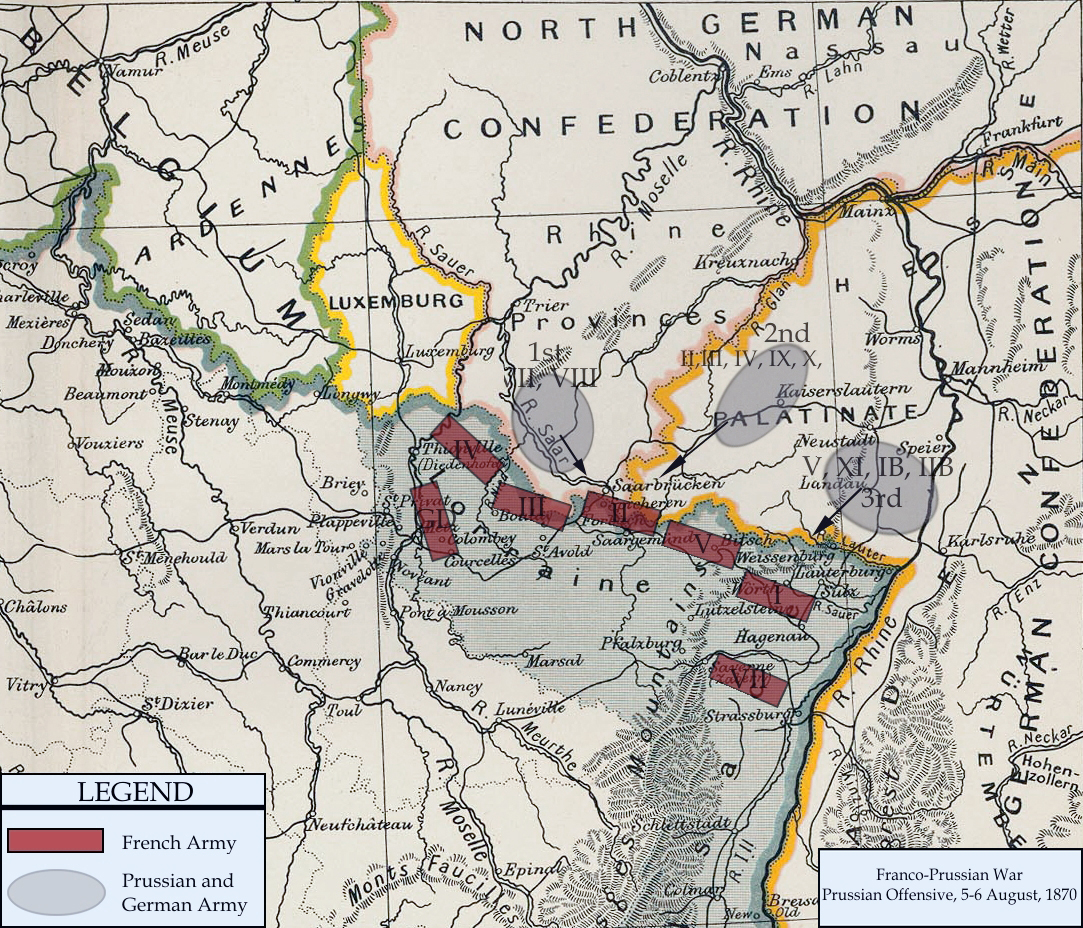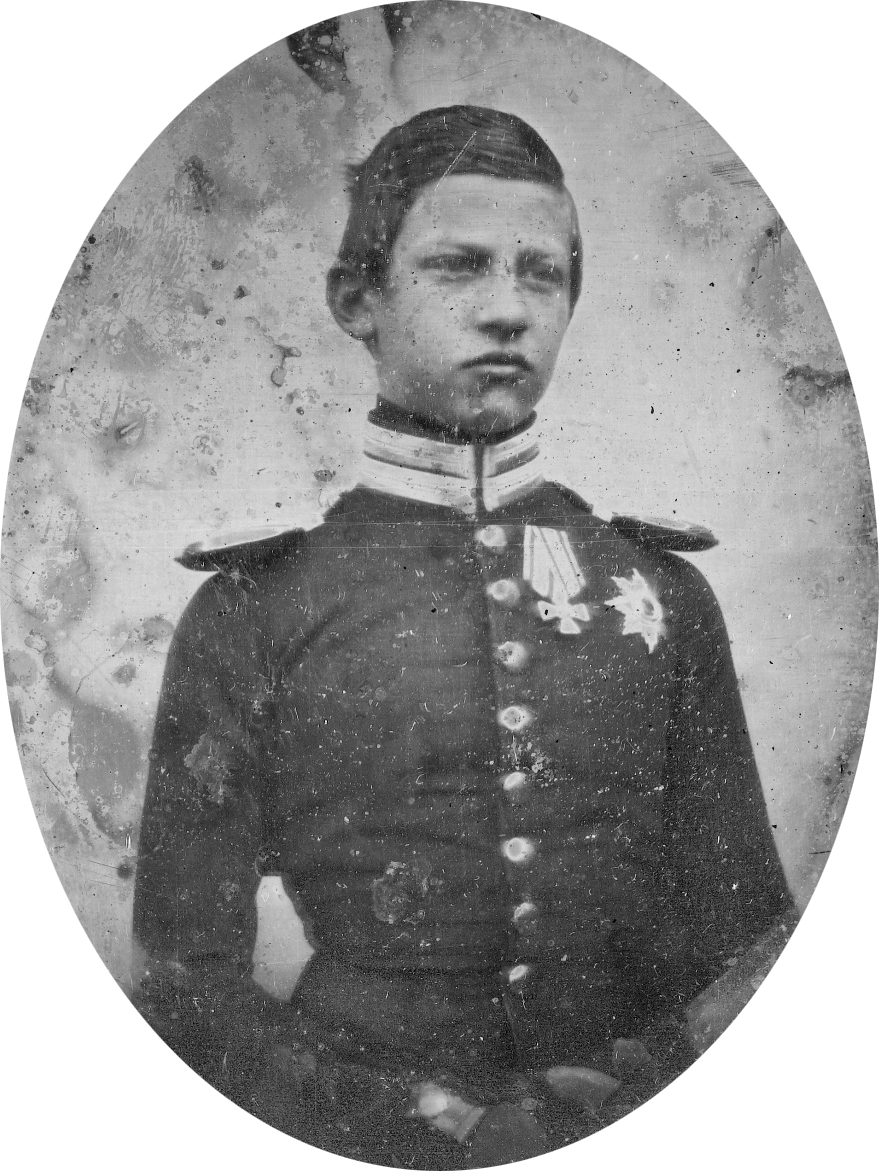|
Siege Of Paris (1870–1871)
The siege of Paris took place from 19 September 1870 to 28 January 1871 and ended in the capture of the city by forces of the various states of the North German Confederation, led by the Kingdom of Prussia. The siege was the culmination of the Franco-Prussian War, which saw the Second French Empire attempt to reassert its dominance over continental Europe by declaring war on the North German Confederation. The Prussian-dominated North German Confederation had recently emerged victorious in the Austro-Prussian War of 1866, which led to the questioning of France’s status as the dominant power of continental Europe. With a declaration of war by the French parliament on 16 July 1870, Imperial France soon faced a series of defeats at German hands over the following months, leading to the Battle of Sedan, which, on 2 September 1870, saw a decisive defeat of French forces and the capture of the French emperor, Napoleon III. With the capture of Napoleon III, the government of the Seco ... [...More Info...] [...Related Items...] OR: [Wikipedia] [Google] [Baidu] |
Corps Législatif
The was a part of the French legislature during the French Revolution and beyond. It is also the generic French term used to refer to any legislative body. History The Constitution of the Year I foresaw the need for a ''corps législatif''. During the period of the French Directory, beginning in 1795, the ''Corps législatif'' referred to the bicameral legislature of the ''Conseil des Cinq-Cents'' (Council of Five Hundred) and the ''Conseil des Anciens'' (Council of Ancients). Later, under Napoleon's Consulate, the Constitution of the Year VIII (1799) set up a ''Corps législatif'' as the law-making body of the three-part government apparatus (alongside the Tribunat and the Sénat Conservateur). This body replaced the Conseil des Cinq-Cents, established by the Constitution of the Year III of the Directory period as the lower house of the French legislature, but its role consisted solely of voting on laws deliberated before the Tribunat. The Constitution of the Year X contin ... [...More Info...] [...Related Items...] OR: [Wikipedia] [Google] [Baidu] |
Marshall Of France
Marshal of France (french: Maréchal de France, plural ') is a French military distinction, rather than a military rank, that is awarded to generals for exceptional achievements. The title has been awarded since 1185, though briefly abolished (1793–1804) and for a period dormant (1870–1916). It was one of the Great Officers of the Crown of France during the and Bourbon Restoration, and one of the Grand Dignitaries of the Empire during the First French Empire (when the title was Marshal of the Empire, not Marshal of France). A Marshal of France displays seven stars on each shoulder strap. A marshal also receives a baton: a blue cylinder with stars, formerly fleurs-de-lis during the monarchy and eagles during the First French Empire. The baton bears the Latin inscription of ', which means "terror in war, ornament in peace". Between the end of the 16th century and the middle of the 19th century, six Marshals of France were given the even more exalted rank of Marshal General ... [...More Info...] [...Related Items...] OR: [Wikipedia] [Google] [Baidu] |
Battle Of Wörth
The Battle of Wörth, also known as the Battle of Reichshoffen or as the Battle of Frœschwiller, refers to the second battle of Wörth, which took place on 6 August 1870 in the opening stages of the Franco-Prussian War (the first Battle of Wörth occurred on 23 December 1793 during the French Revolutionary Wars). In the second battle, troops from Germany commanded by Crown Prince Frederick William and directed by his chief of staff, General Leonhard Graf von Blumenthal, defeated the French under Marshal MacMahon near the village of Wœrth in Alsace, on the Sauer River, north of Haguenau. Prelude During 5 August 1870 the French were concentrated in a selected position running nearly north and south along the western banks of the Sauer on the left front of the German Third Army, which was moving south in an attempt to find them. The French position was marked from right to left by Morsbronn, the Niederwald, the heights west of Wœrth and the woods northeast of Frœschwil ... [...More Info...] [...Related Items...] OR: [Wikipedia] [Google] [Baidu] |
Battle Of Spicheren
The Battle of Spicheren, also known as the ''Battle of Forbach'', was a battle during the Franco-Prussian War. The German victory compelled the French to withdraw to the defenses of Metz. The Battle of Spicheren, on 6 August, was the second of three critical French defeats. Moltke had originally planned to keep Bazaine's army on the Saar river until he could attack it with the 2nd Army in front and the 1st Army on its left flank, while the 3rd Army closed towards the rear. The aging General von Steinmetz made an overzealous, unplanned move, leading the 1st Army south from his position on the Moselle. He moved straight toward the town of Spicheren, cutting off Prince Frederick Charles from his forward cavalry units in the process. Background The French declared war before their troops were in position to invade Germany. The Germans, commanded by Field Marshal von Moltke, began to assemble into three armies, which were to invade France and to occupy Paris. On 4 August they ... [...More Info...] [...Related Items...] OR: [Wikipedia] [Google] [Baidu] |
Wilhelm I Of Germany
William I or Wilhelm I (german: Wilhelm Friedrich Ludwig; 22 March 1797 – 9 March 1888) was King of Prussia from 2 January 1861 and German Emperor from 18 January 1871 until his death in 1888. A member of the House of Hohenzollern, he was the first head of state of a united Germany. He was de facto head of state of Prussia from 1858, when he became regent for his brother Frederick William IV, whose death three years later would make him king. Under the leadership of William and his minister president Otto von Bismarck, Prussia achieved the unification of Germany and the establishment of the German Empire. Despite his long support of Bismarck as Minister President, William held strong reservations about some of Bismarck's more reactionary policies, including his anti-Catholicism and tough handling of subordinates. In contrast to the domineering Bismarck, William was described as polite, gentlemanly and, while staunchly conservative, more open to certain classical liberal ideas th ... [...More Info...] [...Related Items...] OR: [Wikipedia] [Google] [Baidu] |
Siege Of Metz (1870)
The siege of Metz was a battle fought during the Franco-Prussian War from August 19 to October 27, 1870 and ended in a decisive Allied German victory. The French Army of the Rhine under François Bazaine retreated into the Metz fortress after its defeat by the Germans at the Battle of Gravelotte on 18 August 1870. The fortress was promptly surrounded by German forces under Prince Friedrich Karl of Prussia. The French Army of Châlons was sent to relieve the Army of the Rhine but was itself encircled and annihilated by the German armies at the Battle of Sedan on 1–2 September. Unable to capture the fortress by bombardment or storm, the besieging Germans resorted to starving the French to submission. French attempts to break out ended in defeat at the battles of Noisseville on 31 August – 1 September and Bellevue on 7 October. French food supplies ran out on 20 October and François Achille Bazaine surrendered the fortress and the entire Army of the Rhine, some 193,000 ... [...More Info...] [...Related Items...] OR: [Wikipedia] [Google] [Baidu] |
Paris
Paris () is the capital and most populous city of France, with an estimated population of 2,165,423 residents in 2019 in an area of more than 105 km² (41 sq mi), making it the 30th most densely populated city in the world in 2020. Since the 17th century, Paris has been one of the world's major centres of finance, diplomacy, commerce, fashion, gastronomy, and science. For its leading role in the arts and sciences, as well as its very early system of street lighting, in the 19th century it became known as "the City of Light". Like London, prior to the Second World War, it was also sometimes called the capital of the world. The City of Paris is the centre of the Île-de-France region, or Paris Region, with an estimated population of 12,262,544 in 2019, or about 19% of the population of France, making the region France's primate city. The Paris Region had a GDP of €739 billion ($743 billion) in 2019, which is the highest in Europe. According to the Economist Intelli ... [...More Info...] [...Related Items...] OR: [Wikipedia] [Google] [Baidu] |
Frederick III, German Emperor
Frederick III (german: Friedrich Wilhelm Nikolaus Karl; 18 October 1831 – 15 June 1888), or Friedrich III, was German Emperor and King of Prussia for 99 days between March and June 1888, during the Year of the Three Emperors. Known informally as "Fritz",MacDonogh, p. 17. he was the only son of Emperor Wilhelm I and was raised in his family's tradition of military service. Although celebrated as a young man for his leadership and successes during the Second Schleswig, Austro-Prussian and Franco-Prussian wars,Kollander, p. 79.''The Illustrated London News'' he nevertheless professed a hatred of warfare and was praised by friends and enemies alike for his humane conduct. Following the unification of Germany in 1871 his father, then King of Prussia, became the German Emperor. Upon Wilhelm's death at the age of ninety on 9 March 1888, the thrones passed to Frederick, who had been German Crown Prince for seventeen years and Crown Prince of Prussia for twenty-seven years. Freder ... [...More Info...] [...Related Items...] OR: [Wikipedia] [Google] [Baidu] |
Krupp
The Krupp family (see pronunciation), a prominent 400-year-old German dynasty from Essen, is notable for its production of steel, artillery, ammunition and other armaments. The family business, known as Friedrich Krupp AG (Friedrich Krupp AG Hoesch-Krupp after acquiring Hoesch AG in 1991 and lasting until 1999), was the largest company in Europe at the beginning of the 20th century, and was the premier weapons manufacturer for Germany in both world wars. Starting from the Thirty Years' War until the end of the Second World War, it produced battleships, U-boats, tanks, howitzers, guns, utilities, and hundreds of other commodities. The dynasty began in 1587 when trader Arndt Krupp moved to Essen and joined the merchants' guild. He bought and sold real estate, and became one of the city's richest men. His descendants produced small guns during the Thirty Years' War and eventually acquired fulling mills, coal mines and an iron forge. During the Napoleonic Wars, Friedrich Kr ... [...More Info...] [...Related Items...] OR: [Wikipedia] [Google] [Baidu] |
Government Of National Defense
The Government of National Defense (french: Gouvernement de la Défense nationale) was the first government of the Third Republic of France from 4 September 1870 to 13 February 1871 during the Franco-Prussian War. It was formed after the proclamation of the Republic in Paris on 4 September, which in turn followed the surrender and capture of Emperor Napoleon III by the Prussians at the Battle of Sedan. The government, headed by General Louis Jules Trochu, was under Prussian siege in Paris. Breakouts were attempted twice, but met with disaster and rising dissatisfaction of the public. In late January the government, having further enraged the population of Paris by crushing a revolutionary uprising, surrendered to the Prussians. Two weeks later, it was replaced by the new government of Adolphe Thiers, which soon passed a variety of financial laws in an attempt to pay reparations and thus oblige the Prussians to leave France, leading to the outbreak of revolutions in French citi ... [...More Info...] [...Related Items...] OR: [Wikipedia] [Google] [Baidu] |






